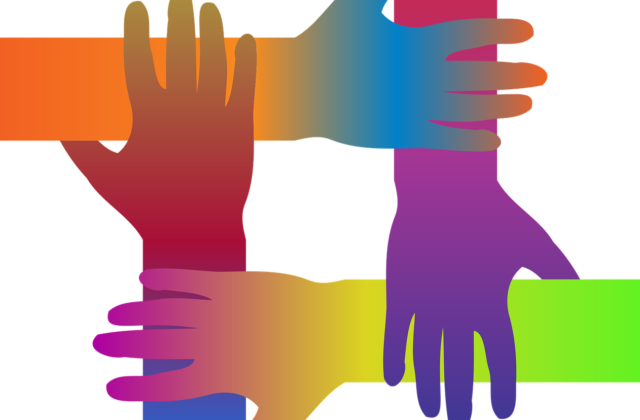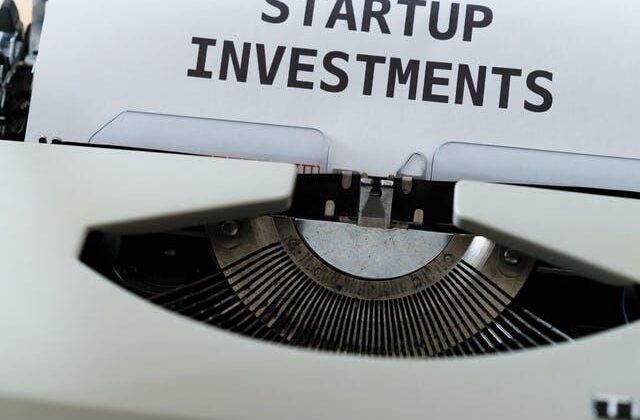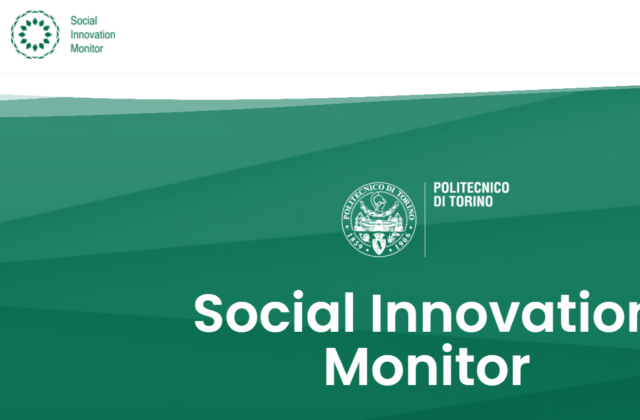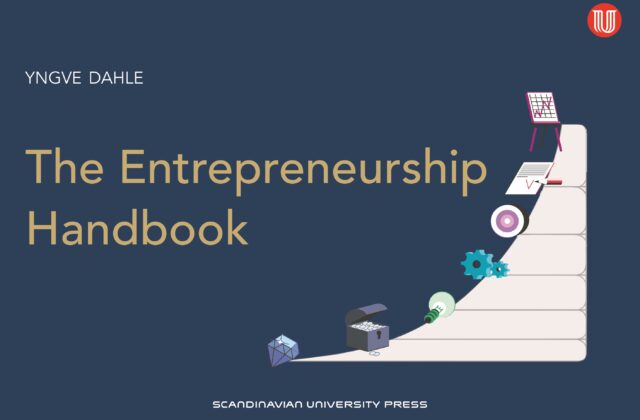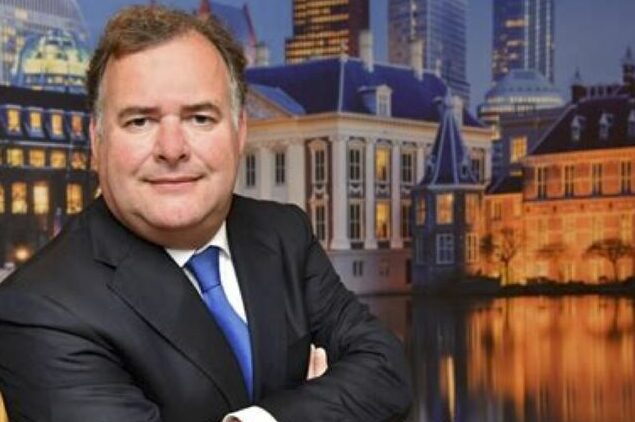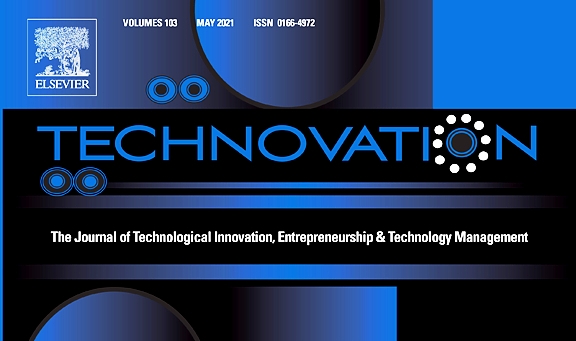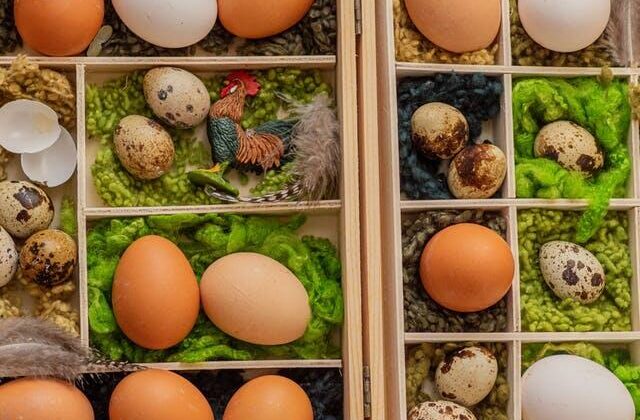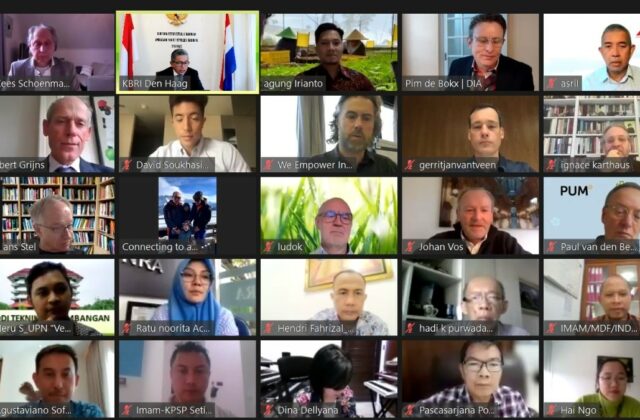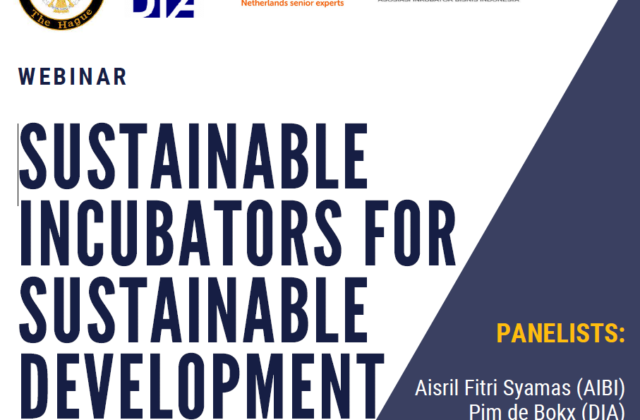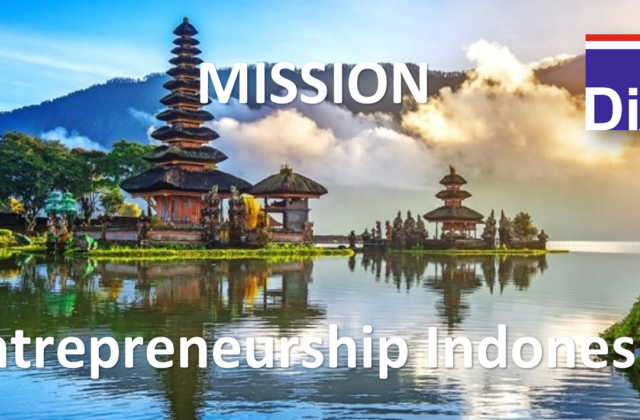WeScale Challenge 2021
WeScale Challenge 2021 is a pitch competition for startups interested in international expansion via Taiwan & the Netherlands.
“Are you an ambitious (startup) company in the Netherlands, aiming for international expansion in Asia? Or are you an ambitious company in Taiwan, aiming for international expansion in Europe? Pitch your company and the innovative products or services you’re offering your clients. Show how beneficial your innovations are for society and how you would use Taiwan / the Netherlands in your plan to expand internationally.”
The WeScale Challenge is an annual pitch competition for startups interested in international expansion via Taiwan & the Netherlands. Each year, the winning startups are awarded business resources to kickstart their business expansion plan.
In the 2021 edition, 6 startups from Taiwan & the Netherlands will pitch their expansion plans in front of an international jury. The winning companies from the Netherlands will receive the Taiwan Explorer Awards, including access into Taiwan’s robust support system for startups. The winning companies from Taiwan will receive free coaching hours and soft-landing resources in Europe, provided by Taiwan Globalization Network, Tiger Accelerator, and partners.
Criteria for Pitching Companies
For Dutch startups & scale-ups joining the pitch event, we love to see:
- that you are a business registered in the Netherlands,
- with a proven proposition and you are looking to scale-up;
- and that you have a clear view on what Taiwan (and Asia) can bring for your company – and vice versa.
For Taiwanese startups & scale-ups joining the pitch event, we love to see:
- that you are a business registered in Taiwan,
- with a proven proposition and you are looking to scale-up;
- and that you have a clear view on what the Netherlands (and Europe) can bring for your company – and vice versa.
To register to pitch, upload your pitch deck and elaborate on these criteria in the Pitch Registration Form.
Crossroads 2021
WeScale Challenge 2021 is organized as a part of Crossroads 2021.
Crossroads 2021 is an umbrella event organized by Startup Utrecht from 8 – 11 November, during which startups, scaleups, investors, corporates, and various stakeholders in the European startup ecosystem come together to network and engage with each other.
REGISTER: WeScale Challenge 2021 Tickets, Tue, Nov 9, 2021 at 8:00 AM | Eventbrite
Is your incubator inclusive (and why should you care about it)?
The last decade has seen increasing changes in work environments. The growing participation of women in different industries, the presence of disabled people, the extension of working age, the increase of international work mobility, and ethnic, cultural, and religious diversity. Also, instances for LGBTQI+ rights have confronted organizations with a needed reflection on these topics. To what extend is your incubator or accelerator affected by these developments?
Diversity in Incubation
The presence of such diversity should not become something that we worry about, escape, or deny. We should instead start to think about how to manage it. Academic research consistently points out the benefits of diversity management for organizations, such as in human resource management, creativity and innovation, marketing, branding, and customer relationship. All the main international and European policy-makers, together with big consulting companies, suggest that we should become aware of the issues and potential of diversity and inclusion in the workplace. What people should you engage in your incubator, and what kind of entrepreneurs should you attract and retain?
In this article, we specifically want to speak about the need for Dutch incubators to better think about the role of cultural and ethnic diversity. Many foreigners enter our country every year under a variety of visas and migratory channels: students attracted by the programs of our universities; asylum seekers and refugees; workers both in low-skilled manufacturing or service works; highly skilled expatriates in any knowledge domain; and entrepreneurs holders of start-up visa. In addition, second (or third) generation migrants might maintain different cultural backgrounds and ties to other places. Have you spent some time considering some possible opportunities and implications of having these diverse people collaborating with your incubator?
Migrant Entrepreneurs in The Netherlands
Migration brings about many social, cultural, and economic benefits, which should be fostered not only by policymakers or civil society organizations but also by private companies who could appropriate different competencies, skills, ideas, and networks. Just as an example: in the United States, a study showed that 55% of billion-dollar startups have an immigrant founder!
On the one side, migrant entrepreneurs (or aspiring entrepreneurs) are similar to local entrepreneurs: they need to grow their competencies, find money, design a viable business model, etc. However, on the other side migrant entrepreneurs have different needs for local entrepreneurs, for instance in mastering the local language (including/especially the entrepreneurship/business language in the local language), understanding the culture of doing business, and managing bureaucratic and regulatory environment of the host country, having the right networks in business and professional domain, or even facing racial, ethnic or other types of discriminations.
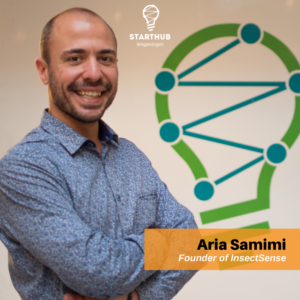
Iranian Start-up from Wageningen making headlines
In 2019 Aria Samimi came to Wageningen for its first-class research. After a half year research, he decided to start-up his company InsectSense at StartHub incubator. Now his company is making world headlines with their breakthrough research in early detection of Covid19 by trained bees.
Refugees, talents on the move
Over the last decade, many programs on support to migrant entrepreneurship have been launched by private and public incubators/accelerators, but also by NGOs or civil society organizations, to sustain migrants in developing an entrepreneurial mindset, business ideas, and start-ups. You might find some examples in the work for different target migrants by DeliteLabs, specifically with refugees by Forward Incubator, or with start-up visas by many facilitators.
However, as emerging from the research carried out by the project MIG.EN.CUBE, being “willing” to target migrant entrepreneurs doesn’t mean being “able” to do it. First, is the incubator really ready to approach diverse people – in terms of the internal “culture” of dealing with diversity and inclusion? To what extent can the staff display cultural understanding, ability to “translate” issues, and approach diverse needs due to their different national or cultural backgrounds, or exposure to international experiences? Second, is the incubation program specifically designed to “listen” and ready to find the right “fit” with migrants’ needs – for instance starting and growing trusted relationships with other actors in the ecosystem (e.g., impact finance, microcredit, welfare organizations, social enterprises)? Third, are the methods and materials used by the incubation program adapted or adaptable to different audiences – for instance for training materials, technical documents, pedagogical approaches (e.g., one-to-one vs. peer learning)?
We should start thinking more about the need to become an “inclusive” incubator – because inclusiveness is not only a matter of pro-social engagement but of strategic and competitive advantage for incubators and accelerators looking for exceptional talents.
How can incubators become inclusive practically?
There is no magic wand, but you could be part of the development of the first toolbox for inclusive incubators. You can immediately start getting engaged and become an active follower of the MIG.EN.CUBE project – which will design training toolkits and events to allow incubation professionals to better understand how to approach culturally diverse entrepreneurs in their programs. To do this, it would be of great importance that you participate in experimental research, led by the University of Bologna (Prof. Daniela Bolzani), and co-developed for the Netherlands with the University of Amsterdam and Impact Hub Amsterdam.
Follow this LINK to participate in this important study and signal your interest in further being in touch with the project team (migencube@unibo.it) (deadline: 6 September 2021). Together with DIA we will be organizing sharing sessions this fall to further develop those practical tools to improve cross-cultural communication and inclusivity in your organization.
Deel II over incubators: jurist en start-up, een moeizaam huwelijk
Sinds onderwijsinstellingen wettelijke verplicht werden om ondernemerschap te stimuleren, is het aantal incubators aan de universiteiten toegenomen. Deze kraamkamers voor ondernemers bieden juridisch advies en andere diensten. Maar is dat wel altijd in het belang van die start-ups? Deel II van een tweeluik.
Aan welke diensten heeft een start-up vooral behoefte? Uit het promotie-onderzoek van Chris Eveleens blijkt dat een start-up het meeste heeft aan intensieve begeleiding. ‘Ondernemers zijn in het begin nogal eens onbewust incompetent’, licht hij toe. ‘Ze geloven in hun idee en denken dat ze alleen nog maar geld nodig hebben om dit tot een succes te laten uitgroeien. Goede incubators doorbreken dat vooroordeel: ze zorgen ervoor dat de ondernemer zich bewust wordt van zijn blinde vlekken …
auteur: Jan Bletz
Why an abundant incubator and accelerator system in Netherlands?
The Dutch Incubation Association (DIA) is starting a research partnership with Social Innovation Monitor with the goal of mapping and investigating the Dutch ecosystem of incubators and accelerators. The partnership will produce the first ever comprehensive report of incubators and accelerators in the Netherlands, documenting their presence and their activities.
The ecosystem of incubators and accelerators has been steadily growing in recent years across the Netherlands. Nevertheless, there is still work to be done to understand how Dutch incubators and accelerators work, their focuses, and business models. To this end, the DIA has launched a research partnership with Social Innovation Monitor to create the first comprehensive report of incubation and acceleration activities in the Netherlands.
The Social Innovation Monitor (SIM) is a team of researchers and professors of several universities and international research centres, including Erasmus University Rotterdam and Vrije University Amsterdam. In recent years, the SIM team has created reports of incubators and accelerators across several European countries, including France, Germany, Italy, Spain, and the UK.
The research in the Netherlands will be supervised by Dr. Fabrizio Core, Assistant Professor of Finance at the Erasmus University Rotterdam, who acted as Vice-Director of Research for the past reports of SIM on incubators and accelerators across Europe. To gather the data, the SIM team, in collaboration with the DIA, will circulate a questionnaire among Dutch-based incubators and accelerators, including DIA members. The goal of the questionnaire is to understand business models, services offered, and funding activities of incubators and accelerators.
What’s in it for us – practitioners at incubation and acceleration programs?
After collecting and analysing the data, SIM will create a comprehensive analysis on where incubators and accelerators are located, as well as how they operate, and which services they offer. The main results of the research will be collected in a Public Report that will be freely available through the SIM and DIA websites. The Public Report will also be presented during a DIA-sponsored event that will take place in the Fall.
For the partners of the research and the incubators and accelerators that shared their data with SIM, a more complete and in-depth version of the analysis, the Complete Report, will be made freely available. The Complete Report will also be available to the public, but in exchange for a small fee needed to support the research.
End of May you’ll be approached by the SIM research team to share your insights through a questionnaire, please cooperate so we CAN capture the breadth and depth of the Dutch start-up ecosystem in its riches and diversity. From this we can learn from each other and showcase our strength.
To know more, SIM website: https://socialinnovationmonitor.com/en/
Hans Biesheuvel inspireert ondernemers bootcamp ‘van lockdown naar lift-off’
De één heeft last van omzetverlies en liquiditeit de ander van groeistuipen, hoe ga je als ondernemer om met snelle veranderingen? 12 ondernemers namen afgelopen 4 weken deel aan de intensieve bootcamp van Entreprenerdy, de eerste keer in Nederland voor het bedrijf uit Noorwegen.
ONL founder: Ondernemers moeten meer tijd besteden aan zelfreflectie
Hans Biesheuvel heeft enthousiast zijn ups en down als ondernemers gedeeld, enkele tips waren: “Leer ook te luisteren, echt te luisteren.”, “Neem ook voor jezelf als ondernemer de tijd voor zelfreflectie” en “Zorg voor de juiste focus om daarvandaan verder te groeien”. Hans Biesheuvel – zelf wars van goeroes en managementboeken – adviseerde vooral ook om als ondernemer je eigen plan te trekken en je te onafhankelijk te maken van de grillen uit Den Haag. En de kansen in digitalisering en circulaire economie te pakken.
Mening van de deelnemende 12 ondernemers
“Een inspirerende Academisch programma afkomstig uit Scandinavië dat mij nieuwe inzichten biedt, focus brengt en mijn ideeën voor Caterbox omzet tot een gedegen en toekomstbestendig businessplan.” Deelde Jan Joost Luitse al na één week via Linkedin, het enthousiasme was bij alle deelnemende ondernemers nogal groot. Ook via Linkedin liet Michiel Heilijgers na 3 weken weten dat hij de MKB Business Bootcamp een “Ode aan het Ondernemerschap” vind. Zij waren geen uitzondering, de bootcamp is gemiddeld met een 8,7 (!) beoordeeld, zo’n hoge waardering voor – in feite een pilot voor Nederland – is hoog te noemen.
De kracht van de Entreprenerdy Bootcamp
De online bootcamp voorziet in 9 sessies van 90 minuten verspreid over 3 weken, ondernemers gaan van ‘Purpose naar Plan’ begeleid door een coach-facilitator en met input van een professor die praktijk aan theorie verbind. Maar het blijft niet bij die sessies, het meeste werk doen de ondernemers met het online EMS (Entrepreneurship Managent Systeem) dat ze na de bootcamp ook gebruiken bij de implementatie. Wat de ondernemers het meest waardevol vonden?
- de presentatie van cases en discussie tussen de deelnemers
- opbouw en structuur van het programma
- toepassing in het EMS/ Entrepreneurship Management System
Vooral opvallend was de hoge mate van interactie tussen de deelnemers. Hoewel divers qua samenstelling (van IT, machinebouw, catering, food franchising tot professionele dienstverlening) was deze groep vanaf sessie #1 intensief aan het netwerken en elkaar aan het helpen. Dit ging daarmee verder dan ‘sec’ inhoudelijke feedback op de cases. En ging ook virtueel tussen de sessies door, mede dankzij de LinkedIn groep.
Impact van Entreprenerdy (re-)bootcamp
Je zou denken dat het te vroeg is om het over de impact van het programma te hebben, maar toch hebben de ondernemers dat goed onder woorden gebracht. Zo heeft de één besloten te stoppen met één van de twee activiteiten, de ander besloten de dienstverlening digitaal/online schaalbaar te maken. Eén ondernemer die twee producten tegelijk aan het ontwikkelen was en het advies kreeg eerst te focussen op één van de twee kreeg – toeval of niet – ineens heel veel vraag naar het eenvoudigste product. Lessen die je hieruit kunt trekken is dat je belangrijkste resource je eigen tijd en aandacht is, daarom moet je (soms harde) keuzes maken. Niet simpel in onzekere tijden! Maar gun jezelf de tijd om te reflecteren en experimenteren.
Belangstelling voor de volgende bootcamp ‘van lockdown naar lift-off’?
Je kunt je interesse aangeven bij Paul Hassels Mönning paul@entreprenerdy.com We zijn al bezig met het plannen van de volgende bootcamp voor 12 ondernemers – wees er op tijd bij.
Voor deze bootcamp wordt samengewerkt met prof. dr. Harry Hummels (UU) en Gerrit Jan van ’t Veen (WorldStartup) en Pim de Bokx (DIA).
INFO: www.entreprenerdy.nl
Geld is niet belangrijk?
Nieuw paper, open access beschikbaar, waarin Frank van Rijnsoever en Chris Eveleens laten zien dat ondernemers tijdens hun verblijf in incubators beter leren welke middelen (geld, kantoorruimte, coaching, netwerk, etc.) echt helpen bij de ontwikkeling van hun jonge bedrijf. Een cruciale vaardigheid die verklaart wat het is dat incubators doen! En een spoiler: het is niet het geld dat zo belangrijk geacht wordt…
Deel I over incubators: start-up wil meer dan geld alleen
Sinds onderwijsinstellingen wettelijke verplicht werden om ondernemerschap te stimuleren, is het aantal incubators aan de universiteiten toegenomen. Deze kraamkamers voor ondernemers bieden juridisch advies en andere diensten. Naarmate financiers van starters elkaar heviger beconcurreren, winnen deze diensten aan belang. Vandaag deel I van een tweeluik, vrijdag volgt deel II.
Eind jaren negentig zagen incubators en aanverwante accelerators als Twinning, Gorilla Park en Newconomy het licht. In feite waren dit investeerders cq financiers die de starters ook kantoorruimte en zakelijke diensten boden, zoals financieel, technisch en juridisch advies. Na de ineenstorting van de beurs aan het begin van de eeuw, verdwenen ze net zo snel als ze gekomen waren.
Maar sinds onderwijsinstellingen geacht worden om ondernemerschap te stimuleren – zoals al te lezen valt in het Actieplan Onderwijs en Ondernemen uit 2006 – is het aantal zogeheten incubators aan de universiteiten toegenomen. Hun banden met de universitaire wereld ….
auteur: Jan Bletz
Indonesian and Dutch Discuss Sustainable Incubators for Sustainable Development
Last week a webinar was organised for incubators and accelerators from Indonesia and Netherlands to meet and discuss the further development of the start-up ecosystem in Indonesia. The webinar was introduced by H.E. Mayerfas, Ambassador of Indonesia in The Netherlands and H.E. Lambert Grijns, Ambassador of The Netherlands in Indonesia both indicating the importance of incubators for start-ups. Not just because of the growth and innovation of the economy but also for solving society’s problems and limiting human impact on the environment. This is considered especially relevant in time policies converge to realising on the UN’s sustainable development goals.
The world witnesses the digital creative economy’s ability to combine technology, innovation, and entrepreneurship to promote economic growth. In the context COVID-19 pandemic, digital creative economy provide potential to support the global economic recovery, including to achieve sustainable development goals.
To reap the potential, countries should support and facilitate higher creative and digital entrepreneurship levels, including to create sustainable incubators to help start-ups in terms of business model readiness: through mentoring and advisory programs, technological facilities and advice, network and linkages, co-working space and initial growth funds.
Indonesia continues to create an open, strong and healthy digital business environment, to allow young, enthusiastic, and creative entrepreneurs to be innovative and receive economic benefits.
Meanwhile, Netherlands is known as home to a vibrant digital creative economy ecosystem with leading innovation hubs, connecting private sectors with world-class incubators and research and development facilities.
Indonesia-Netherlands cooperation for impact on SDG’s by start-ups
In the spirit of Indonesia-Netherlands partnership, Indonesian Embassy in The Hague hosted the Webinar “Sustainable Incubators for Sustainable Development” on 8 April 2021, in collaboration with PUM Senior Experts Netherlands, Dutch Incubation Association (DIA), and Association of Indonesian Business Incubators (AIBI).
The webinar presented four speakers both from Indonesia and the Netherlands: Asril Fitri Syamas (AIBI), Pim de Bokx (DIA), Cees Schoenmakers (PUM), and David Soukhasing (ANGIN) along with testimonials and comments from their respective collaborators.
Attended by 106 participants from governments, incubators, accelerators, start-ups and universities, it is expected that the webinar can be the starting point for a strategic networking between the digital creative economy actors in Indonesia and The Netherlands.
The webinar also aimed to bring perspectives and awareness on the importance of sustainable incubators to the ecosystems and its contributions to the fulfilment of sustainable development goals.
To watch the recording of the webinar, please visit https://youtu.be/x6xzoRSzBwc.
To view the presentation, please visit the shared folder
Further inputs and questions:
Economic Department Embassy: bideko@indonesia.nl
DIA, Pim de Bokx: pim@dutchincubator.nl
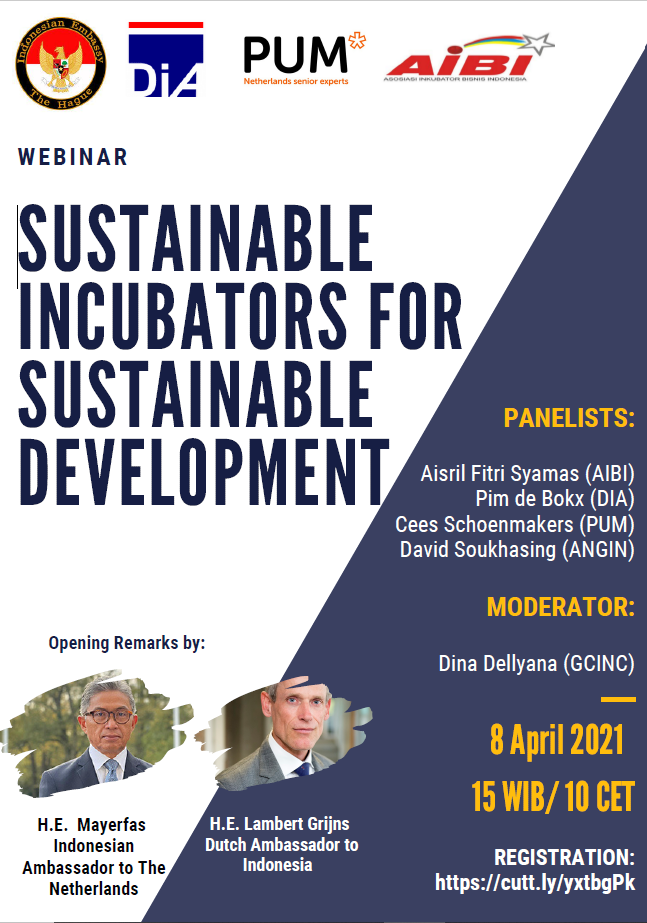
source: website Indonesian Embassy The Netherlands
The Amsterdam startup ecosystem hits €100B
| The Amsterdam startup ecosystem (counting companies founded since 2000) hit €100B in value this quarter. That makes it the third most valuable hub in Europe. 2020 saw record funding raised, Amsterdam’s unicorn tally hit 12, and a fresh $120M funding round just yesterday for Otrium takes its future unicorn count to eight. In partnership Startup Amsterdam, a year into the pandemic we’ve looked at what went down for startups and venture capital in an uncertain year, and how Amsterdam startups stack up compared to other major European tech hubs. Read Dealroom report |
Uitnodiging 8 April 10-12:00 Samenwerken met collega’s in Indonesië, goed plan?
Mede namens de Indonesische ambassade in Nederland, PUM en AIBI (Vereniging van Business Incubators in Indonesië) nodigen wij je uit voor het webinar ‘Sustainable Incubators for Sustainable Development’ dat zal plaatsvinden op 8 april van 10-12:00. Het webinar zal geopend worden door de ambassadeur van Indonesië in Nederland samen met de ambassadeur van Nederland in Indonesië. Het is het startpunt van een gesprek over de mogelijkheden de start-up ecosystemen van beide landen beter aan elkaar te verbinden. Dat zou kunnen leiden tot een samenwerkingsplatform dat door beide overheden wordt gefaciliteerd en gestimuleerd.
PROGRAMMA
10:00 Opening door beide ambassadeurs
10:20 Introductie van het start-up ecosysteem van Indonesië. Aisril Fitri Syamas, Voorzitter Indonesian Business Incubator Association (AIBI). Tevens zal een incubator manager uit Indonesië zijn/haar incubator introduceren.
10:40 Introductie van het start-up ecosysteem van Nederland. Pim de Bokx, voorzitter Dutch Incubation Association (DIA). Tevens zullen Gerrit Jan van ’t Veen (WorldStartup, Den Haag) en Agung Irianto (FoundersTalent, Bandung) hun samenwerking presenteren.
11:00 Introductie Incubator Programma van PUM. Cees Schoenmakers, sectorhoofd. Tevens zal Cees Burger (PUM expert) uitleggen wat hij kan betekenen voor de incubator die hij begeleid in Indonesië (AMIKOM).
11:15 Welk perspectief is er voor samenwerking? David Soukhasing (ANGIN) Gebaseerd op onderzoek (http://bit.ly/ConnectingStartups) uitgevoerd in 2019, zijn aanbevelingen gedaan. Wat is er sindsdien gebeurd?
11:30 Open Discussion
Centres for Entrepreneurship, Incubators, Accelerators en Campus/Science Parks
We nodigen vrij breed uit zodat we een redelijke vertegenwoordiging van het Nederlandse ecosysteem bij elkaar krijgen. Hoewel in Indonesië de afgelopen 10 jaar de ontwikkelingen snel zijn gegaan, zoals we tijdens onze missie in 2019 al ontdekten, is er ook nog veel te doen. Afgelopen jaar heeft de Indonesische overheid verschillende initiatieven ontplooid om deze ontwikkeling te stimuleren. Zowel onder de banner van ‘Creative Economy’, als in beleid om ondernemerschap onderwijs en universiteitscampussen te stimuleren. Er is dus veel kennis en ervaring nodig, maar ook de behoefte om jonge ondernemers internationaal perspectief te bieden.
REGISTRATIE
Registreren via: https://cutt.ly/yxtbgPk
Zie ook de Concept Note van de Indonesische Ambassade
Nieuw groeiperspectief in 3 weken
De corona pandemie heeft je met de neus op de feiten gedrukt, je hebt ondervonden dat je kwetsbaarder bent dan gedacht. Je hebt dubbele uren gedraaid om je bedrijf drijvende te houden of juist de snelle groei bij te benen. Hoe dan ook je hebt geen moment de tijd gehad na te denken over de toekomst …. op 12 april gaat dat veranderen.
Bootcamp van 9 ochtenden in 3 weken
Entreprenerdy, WorldStartup en Pioneerz hebben de handen ineen geslagen om het Entreprenerdy Bootcamp, dat al jaren succesvol draait in Scandinavië, naar Nederland te halen en ondernemers te helpen in korte tijd toekomstperspectief te ontwikkelen. In 9 sessies van 8:00 tot 9:30 – verspreid over 3 sessie per week gedurende 3 weken – herontdek je de kracht van jezelf en je bedrijf en richt je die op kansen in de snel ontwikkelende samenleving. Denk dan aan de blijvende gevolgen van de pandemie, de toenemende digitalisering en de noodzaak meer inclusief en circulair te worden. Het gestructureerde, wetenschappelijk gevalideerde programma doorloop je begeleid door een internationale coach en met hulp van het online EMS (Entrepreneurship Management System) dat na de Bootcamp nog 6 maanden beschikbaar blijft ten behoeve van de implementatie.
Start pilot 12 april – aanbod: gratis*
Omdat dit de eerste sessie is in Nederland en wij vooral ook willen leren van jullie ervaring, bieden we dit programma gratis aan, uitgezonderd het inschrijfgeld van € 50,00. Buiten dat we de Bootcamp in de toekomst ook in het Nederlands willen aanbieden willen we weten welke aanpassingen er verder nodig zijn om het groot uit te kunnen rollen in Nederland om nog veel meer ondernemers hiermee van dienst te zijn. In ruil voor dit gratis aanbod zullen we je dus uit en te na vragen wat je ervan vond en op welke wijze we kunnen bijdragen aan het beste resultaat voor ondernemers in Nederland.
Meer informatie entreprenerdy.nl
SAVE THE DATE: 8 April 10-12:00 Online discussie met collega’s uit Indonesië
Op donderdag 8 april organiseren we in samenwerking met AIBI, de Indonesische ambassade en PUM experts een online discussie rond samenwerkingsmogelijkheden met de titel; Sustainable Incubators for Sustainable Development.
Incubators en Accelerators in Indonesië hebben zich de afgelopen jaren onstuimig ontwikkeld en worden door overheden als belangrijke ontwikkelingsorganisaties erkend. Net als in Nederland worstelen ze met de uitdaging hoe duurzamere organisaties te worden en hopen van hun collega’s in Nederland te kunnen leren hierin nieuwe stappen te kunnen maken.
Nu weten we allemaal dat er geen geheime formule is die de toekomst van elke incubator en accelerator in de wereld zal veiligstellen, wat we wel weten is dat het goed werkt om buiten de eigen comfort zone te kijken en inspiratie op te doen, inzicht te verwerven in hoe waarde toe te voegen aan maatschappij en economie en een heldere ondernemende strategie te ontwikkelen. Ook internationale inbedding kan een belangrijk ingrediënt zijn om het bestaansrecht van incubators en accelerators te borgen.
Met DIA hebben we in oktober 2019 een missie naar Indonesië georganiseerd, we hebben toen al kunnen proeven aan de dynamiek die zich in Indonesië ontwikkeld. Na Singapore heeft Indonesië het grootste aantal unicorns van Zuidoost Azië. Die missie heeft al bijgedragen aan nieuwe links tussen Nederlandse en Indonesische partners. Met deze online discussie willen we bijdragen aan verdere ontwikkeling van vruchtbare relaties, mogelijk kunnen we een gezamenlijk programma gaan ontwikkelen die duurzame samenwerking faciliteert met steun van beide regeringen?
Zet alvast in uw agenda! Binnenkort start de registratie.


